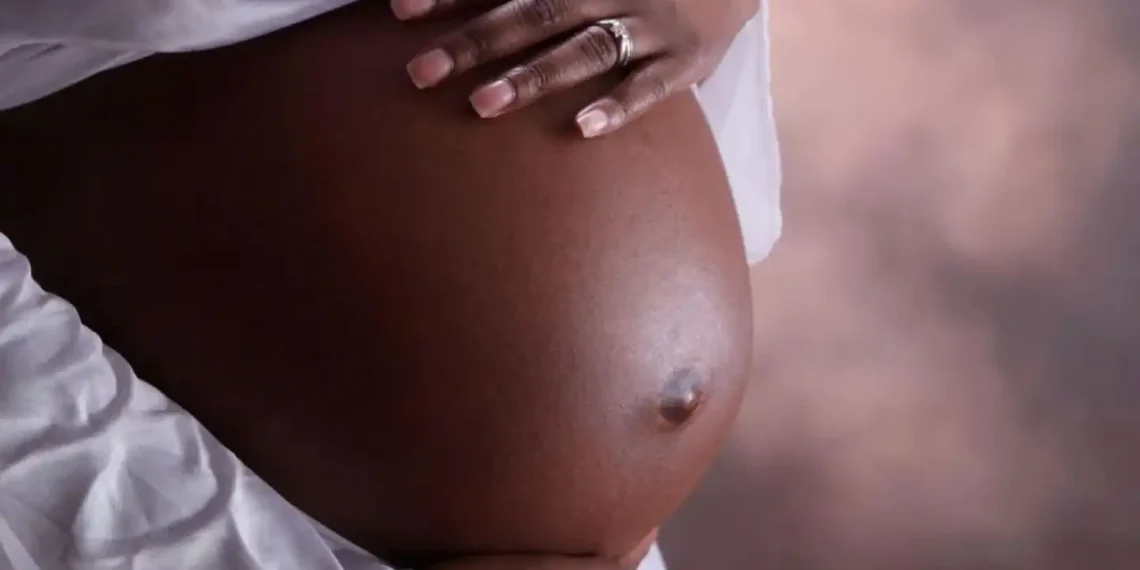Nigeria’s Silent Crisis: A Mother Dies Every Seven Minutes
Warning: This article contains content related to childbirth and an image of a newborn.
At just 24, Nafisa Salahu found herself in the middle of a nightmare. She had gone into labor during a doctors’ strike in Nigeria. Although she made it to the hospital, there was no one available to help when complications began. Her baby’s head was stuck, and all she could do was lie still—for three agonizing days.
Eventually, a doctor agreed to perform a Caesarean section. Nafisa survived—but her baby didn’t.
“I thanked God because I was almost dying. I had no strength left, I had nothing left,” she shared from Kano state, still haunted by the memory.
That was 11 years ago. Nafisa has since given birth several more times and walks into each delivery with acceptance: “I knew I was between life and death, but I was no longer afraid.”
Sadly, her experience isn’t rare.
The Most Dangerous Country to Give Birth
Nigeria holds the grim title of the most dangerous country in the world for childbirth.
According to the United Nations, one in every 100 women in Nigeria dies during labor or shortly after. That translates to more than 75,000 maternal deaths in 2023 alone—an average of one woman every seven minutes.
What’s even more heartbreaking is that many of these deaths are preventable.
Preventable Tragedies
Chinenye Nweze, 36, died from postpartum bleeding in a hospital in Onitsha. Her brother, Henry Edeh, remembers the desperate scene: “The doctors needed blood. They didn’t have enough. They were running around. Losing my sister is pain I wouldn’t wish on an enemy.”
Common causes of maternal death in Nigeria include:
- Postpartum hemorrhage
- Obstructed labor
- High blood pressure (eclampsia)
- Unsafe abortions
Each of these conditions is treatable—if care is timely and available.
Why Are So Many Mothers Dying?
The high maternal death rate in Nigeria is driven by several systemic issues:
- Weak healthcare infrastructure
- Severe shortage of skilled medical workers
- Unaffordable care
- Mistrust in the medical system
- Cultural and logistical barriers
Martin Dohlsten from UNICEF Nigeria points out that some women avoid hospitals altogether, turning to traditional remedies or unskilled birth attendants. And even when they want medical help, getting to a clinic or hospital can be next to impossible.
“There’s no transport. And when they do get there, many facilities lack basic equipment, supplies, or trained staff,” says Mabel Onwuemena of the Women of Purpose Development Foundation.
Trust and Access Are Major Barriers
For 28-year-old Jamila Ishaq, giving birth at home has become the norm—not by choice, but by necessity.
“There were complications during my fourth child’s birth. We went to the hospital, but no one was there to help. So I went back home—and gave birth there,” she recalls.
She’d prefer a private clinic for her current pregnancy, but the cost is out of reach.
Meanwhile, for women like Chinwendu Obiejesi, who can afford private care in Abuja, the story is vastly different. “I always attend antenatal care. I talk to doctors, do my scans, and they’re prepared—even for complications,” she says.
The contrast between urban and rural healthcare access is stark. Wealthy areas have functioning clinics, better roads, emergency services—and fewer maternal deaths.
What’s Being Done to Fix It?
The Nigerian government has taken steps to address this crisis. In late 2023, it launched the Maternal Mortality Reduction Innovation Initiative (Mamii).
Dr. Nana Sandah-Abubakar from the National Primary Health Care Development Agency explains the program’s goal: “We identify pregnant women, know where they live, and support them through pregnancy, birth, and aftercare.”
Mamii is currently piloted in 33 states and aims to:
- Connect pregnant women with medical services
- Provide community transport solutions
- Expand low-cost health insurance options
So far, 400,000 pregnant women across six states have been registered in the program. It’s a start—but experts caution that success depends on sustained funding, careful implementation, and constant evaluation.
A Long Way to Go
Globally, maternal deaths have dropped by 40% since 2000. In Nigeria, the decrease is only 13%. Clearly, more needs to be done.
Nigeria spends just 5% of its federal budget on healthcare, far below the 15% target set by the African Union in 2001. In 2021, there were 121,000 midwives for a population of over 218 million. The WHO says Nigeria needs about 700,000 more skilled health workers.
Every Loss Leaves a Scar
For families left behind, the grief never fades.
“She was our anchor,” Henry Edeh says of his sister, Chinenye. “We lost our parents growing up—she stepped in. When I think about her, I cry bitterly.”
A Call for Change
No woman should have to risk her life to give life.
As Nigeria battles this silent emergency, the stories of Nafisa, Chinenye, Jamila, and countless others highlight an urgent truth: maternal death is not just a medical issue—it’s a human rights crisis.
Real change is possible. But it will take commitment, funding, and a healthcare system that values every mother’s life—no matter where she lives.
This article was rewritten by JournosNews.com based on verified reporting from trusted sources. The content has been independently reviewed, fact-checked, and edited for accuracy, neutrality, tone, and global readability in accordance with Google News and AdSense standards.
All opinions, quotes, or statements from contributors, experts, or sourced organizations do not necessarily reflect the views of JournosNews.com. JournosNews.com maintains full editorial independence from any external funders, sponsors, or organizations.
Stay informed with JournosNews.com — your trusted source for verified global reporting and in-depth analysis. Follow us on Google News, BlueSky, and X for real-time updates.













